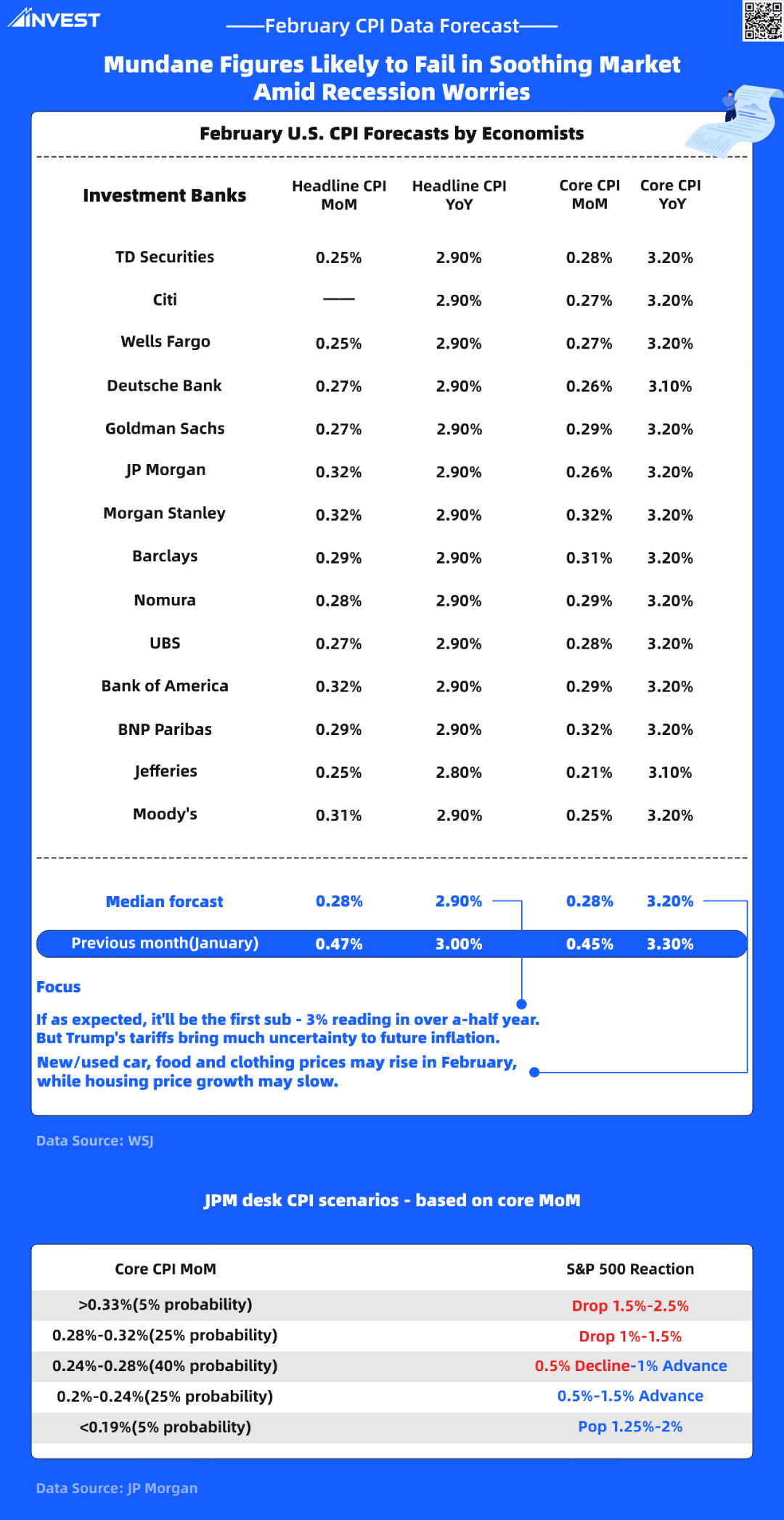February CPI Data Forecast: Mundane Figures Likely to Fail in Soothing Market Amid Recession Worries
On Wednesday, the Bureau of Labor Statistics is set to release the February Consumer Price Index (CPI). This data has attracted significant attention as the US stock market has been on a downward trend recently. Investors are eager to gain insights into the direction of the US economy and the impact of Trump's tariffs on prices from this release.
Looking at the historical data, after dropping to 2.4% in September last year, the overall US CPI has been on the rise for four consecutive months, reaching 3% in January this year, thus deviatin from the Federal Reserve's medium - term target of 2%. With the inflation risks associated with Trump's trade tariff plan gradually emerging, economic data has been fluctuating, and consumers' concerns have been mounting.

Wall Street generally anticipates that due to the weakening of the base effect in January last year, the overall CPI in February may decline to 2.9%, with a month-on-month increase of 0.28%. In terms of sub - indicators, the price of energy commodities after seasonal adjustment has decreased, yet the food inflation trend persists. Amid the egg shortage, food prices are expected to increase by 0.3%, resulting in a three - month annualized growth rate of 4.1%, the highest in two years. Grocery prices are projected to rise by 0.4%.
Regarding the core CPI, economists expect the year - on - year growth rate to potentially decline from 3.3% to 3.1%, with a month - on - month growth rate of 0.2% - 0.3%. Housing inflation may slow down once again. The year - on - year growth in January was 4.4%, the smallest increase since January 2022. The year - on - year growth rate of rents observed by Zillow has dropped to 3.7%, and the Owner Equivalent Rent (OER) is forecast to increase by 0.4% month - on - month.
The market is highly sensitive to this data. Goldman SachsGBXC-- traders have pointed out that this year's CPI report is of great significance, with the S&P 500 index potentially experiencing fluctuations of up to 1.7% in either direction. An institutional survey shows that 41% of the surveyed investors expect the market's reaction to the data to be mixed/negligible, 28% believe it will trigger risk appetite, and 31% think it will lead to risk - averse sentiment. If the data is moderate or shows a mild increase, it will leave room for the Federal Reserve to cut interest rates, thereby boosting the market. However, if Trump's tariffs cause the CPI to rise, the financial market will widely avoid risks.
Turning market noise into visual signal.
Latest Articles
Stay ahead of the market.
Get curated U.S. market news, insights and key dates delivered to your inbox.

Comments
No comments yet